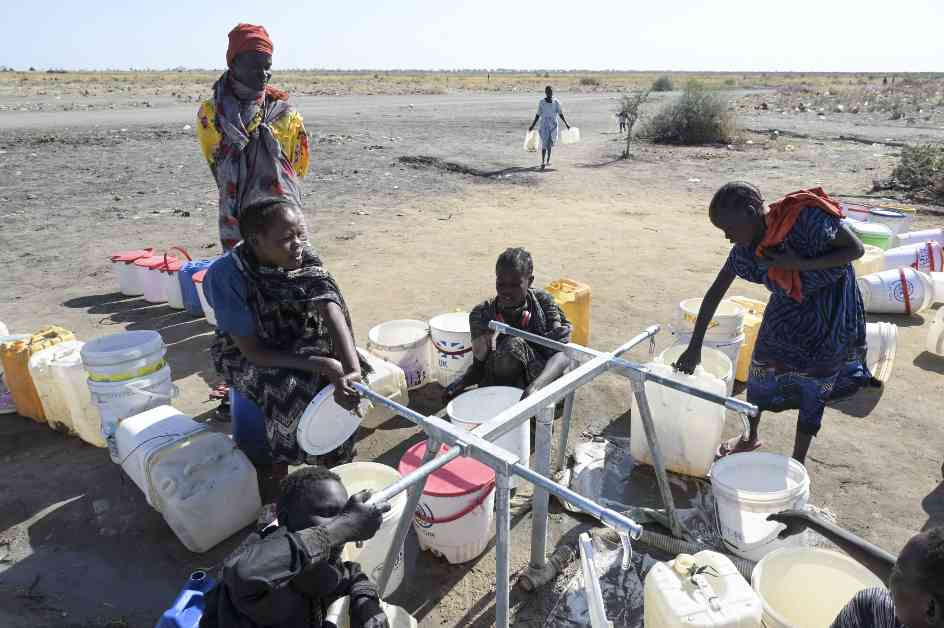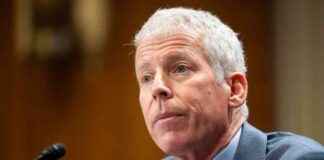Nicola Sturgeon, an MSP (Member of the Scottish Parliament) and former First Minister of Scotland, and Ben Wilson, the International Policy Lead for Stop Climate Chaos Scotland, are sounding the alarm about the critical state of the world. The impacts of climate change are causing chaos, conflict, and economic struggles across the globe. Despite the urgency of the situation, many political leaders are turning their backs on climate commitments, jeopardizing the global consensus that has maintained peace and security since World War II. It’s time to recognize that climate action is not just about saving the environment – it’s also crucial for global security. Failing to act now will lead to population displacement, political unrest, and increased conflict.
Climate change is already fueling conflicts worldwide. For example, the war in Tigray, Ethiopia, was exacerbated by climate-induced droughts. Similarly, in Sudan, changes in migration patterns due to desertification and water scarcity have escalated ethnic and regional tensions, resulting in violence and mass displacement. These are not isolated incidents. If we continue to ignore the climate crisis, we will see a surge in human insecurity on an unprecedented scale.
The economic ramifications of inaction on climate change also pose a significant threat to peace. When communities lose their means of living, social unrest often follows. Economic hardships create opportunities for extremist groups to exploit fear and division. Governments that fail to prioritize climate action now are setting the stage for instability in the future.
The trend of world leaders reneging on climate commitments is fueled by a misguided belief that achieving net zero emissions will harm the economy. This narrative is not only false (a recent CBI report demonstrates that the net-zero industry drives economic growth) but also short-sighted. Neglecting climate action now will result in substantial financial and human costs down the line. As the Stern Review emphasized nearly two decades ago, the economic benefits of taking decisive action on climate change far outweigh the costs of inaction.
Furthermore, the latest IPCC reports confirm that climate impacts are already exacerbating poverty, hunger, and displacement in vulnerable communities worldwide. These inequalities will deepen unless emissions are reduced and adaptation efforts are accelerated.
The decision of the UK and other governments to cut aid budgets to bolster defense spending is concerning. These cuts jeopardize the climate finance commitments of the Paris Agreement, further imbalancing the relationship between the Global North and the Global South. Without a renewed dedication to climate justice, the future of global cooperation on climate change, exemplified by COP30, is at risk.
In the face of resistance to mitigation and adaptation efforts, and a resurgence of climate denial in political spheres, the concept of loss and damage becomes crucial. Loss and damage involves payments from wealthier nations to less affluent countries to address the irreversible climate impacts they are already facing. It is an act of reparations rather than mere charity.
While some may view loss and damage as an unaffordable luxury, neglecting to address the irreversible impacts of climate change will only escalate global conflicts. Acting in good faith on all aspects of climate injustice is essential for a peaceful world.
At its core, climate action is a matter of justice. The poorest countries bear the brunt of climate impacts despite contributing the least to the crisis. This injustice is not only a moral failing but also a geopolitical risk. Upholding the principle of fairness is crucial for global peace.
The principle of multilateralism, the foundation of the post-war global order, must be defended. Small nations like Fiji and Kiribati must have an equal voice in climate negotiations to maintain global peace. Leaders who prioritize military spending over climate finance are not promoting safety but rather fostering conditions for future conflicts.
As COP30 approaches, the future of global cooperation on climate change hangs in the balance. Climate justice is essential for a peaceful world, and world leaders must prioritize it over pandering to strong-man egos. The imperative of leaving a healthy and peaceful planet for future generations requires unwavering commitment to climate action. The stakes are high, but with political will, COP30 can be a turning point towards a more sustainable and secure future.














